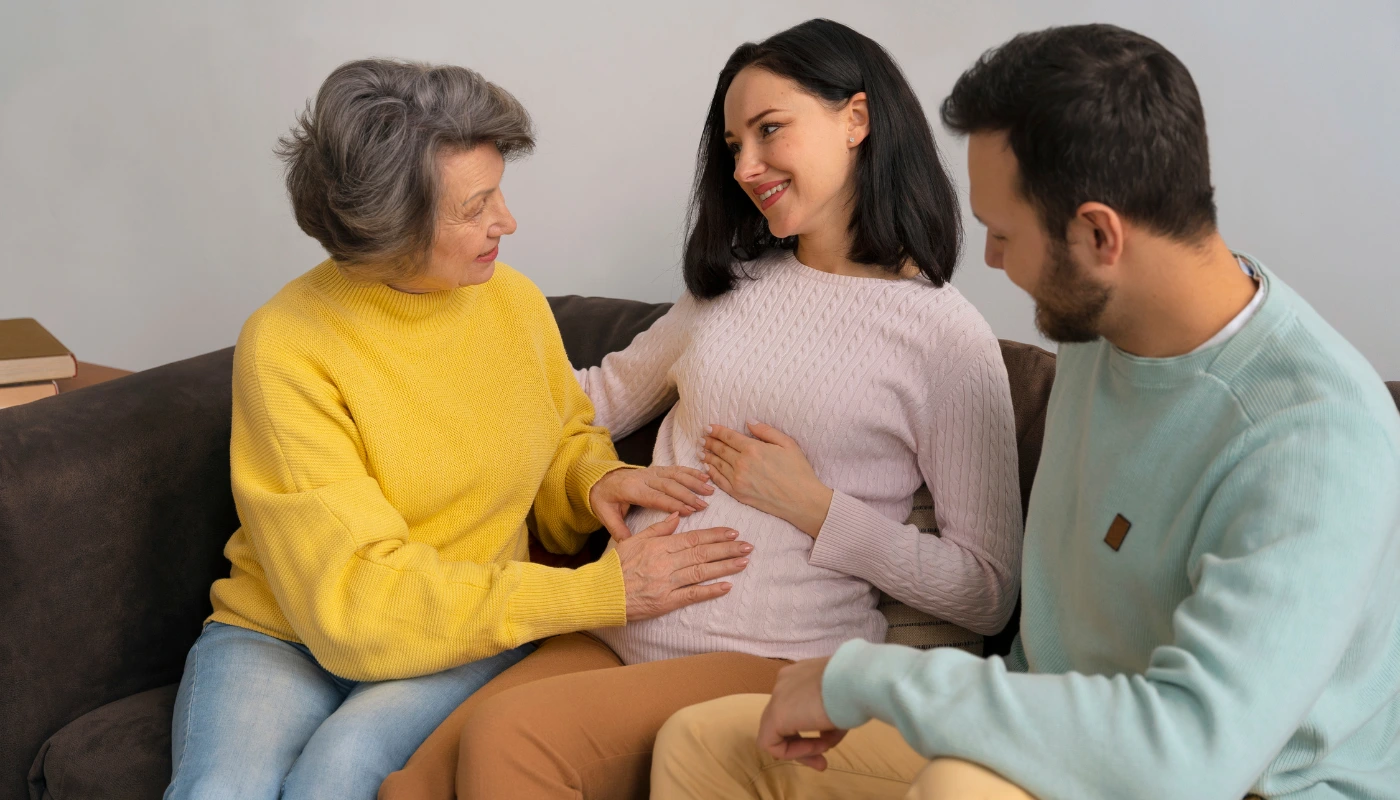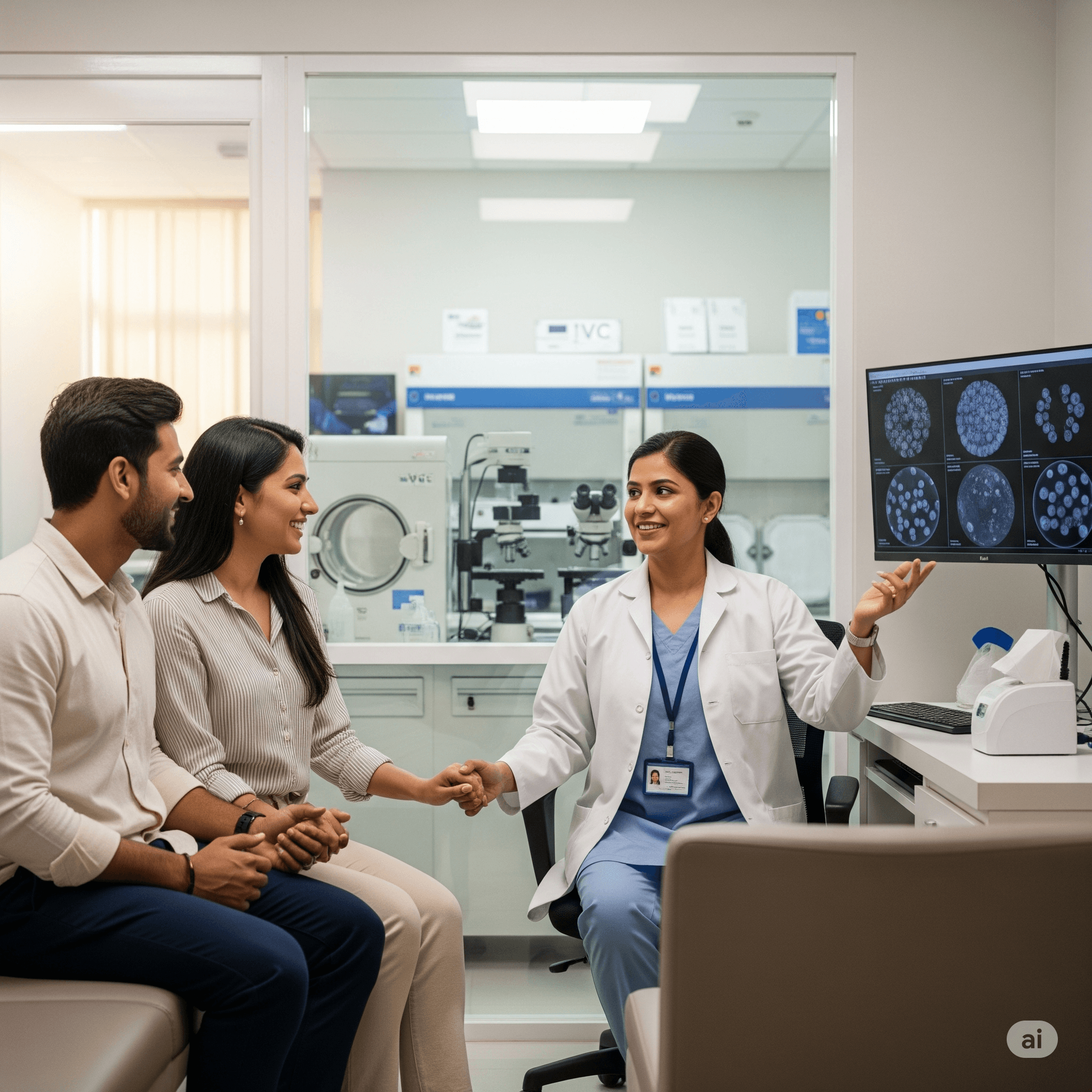In today’s world, where career goals, personal aspirations, and health often delay parenthood, IVF (In-vitro Fertilization) has become a trusted route to building a family. But timing still matters — more than most couples realize.
At Mediversal Fertility & IVF Clinic, we meet hundreds of hopeful parents every month who ask one simple question: “What is the right age to go for IVF?”
Let’s decode that with clarity, data, and doctor-backed advice.
Why Age Plays a Key Role in IVF
A woman’s fertility declines naturally with age — especially after 35 — and so does the quality of her eggs. IVF success is closely tied to this biological clock. As age goes up, chances go down.
Here’s why:
- Egg quantity and quality reduce with time
- Higher risk of chromosomal abnormalities
- Greater need for medical support or donor eggs
IVF Success Rates by Age – What the Numbers Say
According to data from Indian and global fertility clinics:
| Age Group | Success Rate (Per IVF Cycle) |
|---|---|
| Under 30 | 45–55% |
| 30–34 | 40–50% |
| 35–37 | 35–45% |
| 38–40 | 25–35% |
| Over 40 | 10–20% (with own eggs) |
Note: These are average numbers. Success depends on health, diagnosis, clinic expertise, and more.
Ideal Time to Start IVF: Doctor’s Recommendation
Under 30 – Highest Success, Least Risk
This is biologically the most fertile phase. If medical issues exist (like PCOS, male factor infertility, or blocked tubes), starting IVF early gives best outcomes in fewest cycles.
30–34 – Great Time with Slightly Lower Fertility
This is a sweet spot for many couples. Fertility is still strong, and awareness is higher. Ideal for career-focused individuals who now feel ready.
35–37 – Consider Faster Action
Fertility starts declining significantly now. If natural conception hasn’t worked for 6–12 months, consider moving to IVF with proper ovarian reserve testing (AMH, AFC).
38–40 – Be Ready for Multiple Cycles
Egg quality and count drop, and success rates vary. With early planning, IVF can still work — possibly with multiple cycles, ICSI, or frozen embryo transfers.
Above 40 – Options Like Donor Eggs May Help
Natural eggs may not respond well, and success may dip. However, **donor eggs, embryo freezing, and IVF with advanced lab support** can still lead to parenthood.
When to Freeze Eggs: Age vs. Timing
For women not ready to conceive yet, egg freezing between 28–34 is ideal. This preserves healthy eggs for future IVF use.
Benefits:
- Locks in current fertility potential
- Reduces stress later
- Higher success than IVF at 38+ with fresh eggs
Can Men’s Age Impact IVF Too?
Yes, although sperm regenerate constantly, men over 40 may experience:
- Lower sperm motility
- Higher DNA fragmentation
- Delayed embryo development
For older men, lifestyle improvement and perm health tests** are recommended before IVF.
Dr. Nidhi’s Tips: Don’t Wait Too Long
“IVF is a science, but timing is everything. Most couples wait too long hoping for natural conception — and then we’re racing against time.”
- Do basic fertility tests by age 30–32 if not planning soon
- Don’t delay medical evaluation after 6–12 months of trying
- Even if you’re not ready now, plan an IVF roadmap with a doctor
Conclusion: IVF Works Best with Timing and Planning
There is no “perfect” age — only the right awareness at the right time. The earlier you know your fertility health, the better your planning — emotionally and financially.
Mediversal IVF offers consultations, egg freezing, and personalized planning for couples at every stage. Your age doesn’t define your chance — your preparation does.





